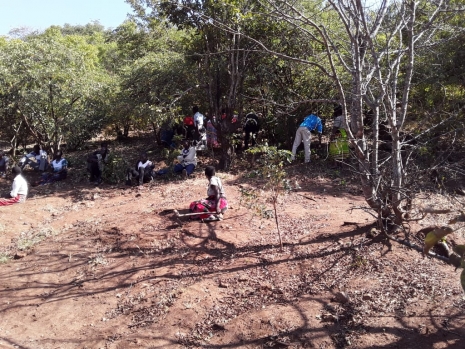Government says despite adoption of the Integrated Production System (IPS) for tobacco marketing, stakeholders are discussing standards and guidelines to harmonise practices among the buyers.
This comes in the wake of complaints from some farmers recently that contract farming agreements with some buyers are not providing price clauses which is supposed to be the key in such deals.
Speaking on Friday on the sidelines of a field visit in Lilongwe organised by Agricultural Research and Extension Trust (ARET) and Japan Tobacco International (JTI), Minister of Agriculture Peter Mwanza said buyers will have to follow uniform guidelines in their contracts with farmers.
“There are so many things that have to be sorted out although we adopted this system. Government, tobacco associations, buyers and others are discussing to come up with standards,” said Mwanza.
Commenting on the new policy, JTI’s Corporate Affairs Manager, Limbani Kakhome said although the adoption of the IPS is a gradual process, it is already evident that the system is significant to the future of the tobacco sector.
“The initial steps taken are significant enough to send clear message of what is needed for the future of tobacco,” he said in his official speech during the tour.
He said farmers under contract farming take part in the promotion of sustainability through forestation, food security, elimination of child labour and provision of integrity in the farming process through traceability, improved agronomy practices and security of high quality and market-competitive leaf.
Under the IPS, 80 percent of all tobacco produced this year will be sold through contract arrangement.
The adoption of the IPS by the Malawi government followed pressure from the buyers who prefer the IPS to the auction, saying contract farming ensures quality and recommended production practices, among others.
During the field visit, the minister toured a tobacco nursery of a JTI contracted farmer, Violet Savala, at Chitedze.




